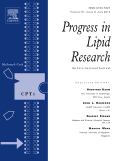
Molecular Metabolism
Scope & Guideline
Connecting Research to Real-World Health Implications
Introduction
Aims and Scopes
- Metabolic Regulation and Signaling:
Research dedicated to understanding the signaling pathways involved in metabolic regulation, including insulin signaling, glucagon receptor pathways, and the role of various hormones and nutrients in metabolic homeostasis. - Mechanisms of Metabolic Disorders:
Exploration of the molecular and cellular mechanisms underlying metabolic diseases such as obesity, type 2 diabetes, and non-alcoholic fatty liver disease (NAFLD). This includes studies on insulin resistance, lipid metabolism, and the interplay between metabolism and inflammation. - Role of Adipose Tissue:
Investigating the functions of different types of adipose tissue (white, brown, and beige) in energy metabolism, thermogenesis, and their roles in metabolic diseases. - Gut Microbiome and Metabolism:
Research into the influence of gut microbiota on metabolism, including how microbial metabolites affect host metabolism and the impact of diet on microbial composition. - Therapeutic Interventions:
Evaluation of pharmacological and dietary interventions for metabolic disorders, including the effects of new drug candidates, dietary components, and surgical interventions like bariatric surgery on metabolic health. - Metabolic Plasticity and Adaptation:
Studies on how organisms adapt their metabolism in response to environmental changes, dietary intake, and physiological demands, including the role of exercise and circadian rhythms.
Trending and Emerging
- Interplay of Metabolism and Immunity:
There is an increasing focus on the relationship between metabolic processes and immune responses, particularly in the context of obesity and inflammation. Studies are exploring how metabolic dysregulation can influence immune function and vice versa. - Role of Non-Coding RNAs:
Research into the regulatory roles of non-coding RNAs, such as microRNAs and long non-coding RNAs, in metabolic processes is gaining traction. These molecules are being studied for their potential to regulate gene expression in metabolic tissues. - Metabolic Programming and Epigenetics:
Emerging studies on how early-life nutrition and environmental factors can epigenetically influence metabolism later in life are becoming more prominent. This area explores the long-term metabolic consequences of maternal diet and stress. - Precision Nutrition and Personalized Medicine:
The trend towards precision nutrition, which tailors dietary recommendations based on individual genetic, metabolic, and microbiome profiles, is gaining importance. This approach aims to enhance metabolic health through personalized dietary strategies. - Technological Advances in Metabolomics:
The use of advanced metabolomic profiling techniques to understand complex metabolic networks and their alterations in disease states is on the rise. This includes high-throughput screening and multi-omics integration.
Declining or Waning
- Basic Biochemical Pathways:
Research that primarily focuses on classical biochemical pathways without integrating new findings related to genetics, epigenetics, or systems biology is becoming less prominent. The field is shifting towards more integrated approaches that consider the complexity of metabolic regulation. - Single-Molecule Studies:
While single-molecule studies were once a focus, there is a growing trend towards multi-omics approaches and systems biology that consider interactions among various molecular players rather than isolating single components. - Animal Models in Isolation:
There is a decreasing emphasis on studies using traditional animal models in isolation. Instead, there is a move towards more complex systems that include humanized models or multi-species approaches to better reflect human metabolic conditions.
Similar Journals

DIABETES & METABOLISM
Elevating Knowledge in Endocrinology and Diabetes CareDIABETES & METABOLISM, published by MASSON EDITEUR in France, is a leading academic journal dedicated to the fields of endocrinology, diabetes, and metabolism. With an impressive Impact Factor reflecting its esteemed reputation, the journal has been ranked in the Q1 category across multiple disciplines including Endocrinology, Internal Medicine, and more, showcasing its significance and influence in the scientific community. Since its inception in 1996 and continuing its contributions through 2024, DIABETES & METABOLISM systematically disseminates high-quality research findings, reviews, and clinical studies aimed at furthering knowledge and encouraging innovation in metabolic diseases. Although not an open-access journal, it ensures that valuable research is accessible to a broad audience through institutional subscriptions and affiliations. As a key resource for researchers, clinicians, and students alike, this journal stands at the forefront of advancing understanding and treatment options in diabetes and related metabolic disorders, making it an essential addition to any academic library.

Neuropeptides
Advancing Knowledge in Neuroscience and EndocrinologyNeuropeptides is a prestigious, peer-reviewed journal published by Elsevier, focusing on the critical role of neuropeptides in various biological processes and their implications in cellular and molecular neuroscience, endocrinology, and neurology. With an impact factor reflecting its influence in the field and a diverse audience ranging from researchers to healthcare professionals, the journal serves as an essential platform for the dissemination of groundbreaking research from 1980 to 2024. Adhering to high academic standards, Neuropeptides holds a Q3 ranking in Cellular and Molecular Neuroscience and Endocrine and Autonomic Systems, alongside a solid Q2 ranking in both Endocrinology and Neurology. This positions the journal at the forefront of its disciplines, contributing valuable insights into the understanding of neuropeptide functions in health and disease. By not operating as an Open Access journal, it ensures sustainability in the publishing process while upholding rigorous review standards. Researchers, professionals, and students are encouraged to engage with the findings published in this journal, which plays a vital role in advancing knowledge and fostering collaboration within the neuroscientific community.

PROGRESS IN LIPID RESEARCH
Transforming Understanding of Lipid DynamicsProgress in Lipid Research, published by Pergamon-Elsevier Science Ltd, is a leading scientific journal dedicated to advancing the understanding of lipid biology and its implications for human health. With an impressive impact factor, it ranks in the Q1 quartile in both Biochemistry and Cell Biology as of 2023, reflecting its vital role in disseminating high-quality research. Covering a wide scope of topics from lipid metabolism to cell signaling pathways, the journal serves as a key resource for researchers, professionals, and students alike, striving to elucidate the complex functions of lipids in various biological systems. With publication converging since 1978 and extending to 2024, Progress in Lipid Research continues to provide innovative insights and foster collaboration within the scientific community, solidifying its reputation as an essential platform for lipid research.

Frontiers in Physiology
Unleashing innovative insights for health and disease.Frontiers in Physiology, published by FRONTIERS MEDIA SA, is a leading open-access journal that has been at the forefront of physiological research since its inception in 2010. As a reputable publication based in Switzerland, it aims to foster the dissemination of groundbreaking findings across various domains of physiology, engaging a global audience of scholars and practitioners. With a commendable Q2 ranking in the fields of both general physiology and medical physiology for 2023, this journal stands out in its field, achieving a significant Scopus rank of #32/113 in medical physiology and #58/193 in biochemistry, genetics, and molecular biology. Frontiers in Physiology not only commits to maintaining high scholarly standards but also ensures that all its articles are freely accessible, thereby promoting collaborative knowledge exchange. With a clear focus on advancing our understanding of physiological processes, the journal plays a crucial role in the development of innovative approaches to health and disease, making it an essential resource for researchers, professionals, and students alike.

HORMONE AND METABOLIC RESEARCH
Unraveling the Complexities of Hormonal InfluenceHORMONE AND METABOLIC RESEARCH, published by GEORG THIEME VERLAG KG, stands as a reputable platform in the fields of biochemistry, endocrinology, and metabolism since its establishment in 1969. This peer-reviewed journal provides critical insights and advancements in the intricate relationships between hormones and metabolic processes, catering to researchers, healthcare professionals, and students alike. With an impressive convergence of knowledge spanning over five decades, it maintains a commendable Q3 ranking in multiple categories, including Biochemistry, Clinical Biochemistry, and Endocrinology, highlighting its contribution to cutting-edge scientific discourse. Although not an open-access journal, it offers a plethora of access options for readers and institutions, ensuring that vital research reaches those who need it most. Located in Stuttgart, Germany, the journal is positioned at the forefront of influential research in hormone and metabolic studies, emphasizing its importance for ongoing investigations into health and disease.

BIOCHEMICAL JOURNAL
Navigating the Complexities of Life at the Molecular LevelBIOCHEMICAL JOURNAL, published by Portland Press Ltd, stands as a leading publication in the fields of Biochemistry, Cell Biology, and Molecular Biology, reflecting a commitment to advancing scientific knowledge since its inception in 1945. With a distinguished Q1 ranking across these categories and impressive Scopus rankings, the journal serves as an invaluable resource for researchers, professionals, and students alike, facilitating critical discoveries and innovative research practices. Although not currently offering open access, the journal provides a platform for high-quality peer-reviewed articles, ensuring rigorous standards in the dissemination of biochemical research. Spanning over seven decades and continuing through to 2024, the BIOCHEMICAL JOURNAL fosters an environment where cutting-edge biochemical research thrives, supporting the global scientific community's efforts to address complex biological questions and enhance our understanding of fundamental cellular processes.

JOURNAL OF PHYSIOLOGY AND BIOCHEMISTRY
Exploring the Synergy of Life SciencesJOURNAL OF PHYSIOLOGY AND BIOCHEMISTRY, published by Springer in the Netherlands, serves as a pivotal platform for disseminating high-quality research within the fields of physiology, biochemistry, and related biomedical sciences. With an impressive impact factor reflected in its categorization as Q2 in Biochemistry and Q1 in Medicine (miscellaneous), this journal fosters a vibrant community of scholars dedicated to advancing knowledge and innovation. The journal’s broad scope encompasses a wide range of topics from cellular mechanisms to systemic physiology, making it relevant for both theoretical and applied sciences. Researchers and practitioners are encouraged to utilize the available Open Access options to reach a wider audience. The journal’s continuous contribution to the scientific dialogue since its inception in 1996 positions it as a key resource for professionals and students alike, facilitating the exploration of cutting-edge topics and collaborative research opportunities.

PPAR Research, an esteemed journal published by HINDAWI LTD, specializes in the rapidly evolving fields of drug discovery and pharmacology, contributing significantly to the body of research surrounding peroxisome proliferator-activated receptors (PPARs) and their roles in various biochemical processes. With an open access policy implemented since 2006, the journal ensures that its high-quality content is readily available, promoting widespread dissemination of knowledge. Currently ranked in the Q2 category for both Drug Discovery and Medical Pharmacology, it boasts a respectable position within the scientific community, evidenced by its Scopus rankings. PPAR Research serves as an essential resource for researchers, professionals, and students looking to advance their understanding of PPAR biology and its implications in therapeutic development. The journal's commitment to excellence and accessibility makes it a key player in supporting innovative research and critical discussions in the life sciences.

JOURNAL OF MOLECULAR ENDOCRINOLOGY
Innovating Research at the Intersection of Hormones and BiologyJOURNAL OF MOLECULAR ENDOCRINOLOGY, published by BIOSCIENTIFICA LTD, is a prestigious academic journal that has made significant contributions to the fields of endocrinology and molecular biology since its inception in 1988. With an impressive impact factor that places it in the Q1 category for Endocrinology and Q2 for Molecular Biology, this journal is recognized for its rigorous peer-reviewed research that addresses key questions at the intersection of molecular mechanisms and hormonal regulation. The journal's accessibility within the Scopus rankings, notably positioned 45th out of 128 in Endocrinology, highlights its relevance and influence in shaping contemporary scientific discourse. Although the journal does not currently offer open access options, it remains an essential resource for researchers, professionals, and students eager to explore groundbreaking discoveries and advancements in the hormonal sciences. The JOURNAL OF MOLECULAR ENDOCRINOLOGY continues to pave the way for critical exploration and innovation, ensuring its place as a vital publication for the advancement of knowledge in molecular endocrinology.

International Journal of Biological Sciences
Exploring the Depths of Biological KnowledgeInternational Journal of Biological Sciences (ISSN: 1449-2288, E-ISSN: 1449-2288) is a premier open-access journal published by IVYSPRING INTERNATIONAL PUBLISHING since 2005, located in Australia. With a commitment to advancing knowledge in the life sciences, this journal covers a wide spectrum of disciplines, including Applied Microbiology and Biotechnology, Cell Biology, Developmental Biology, Ecology, Evolution, Behavior and Systematics, and Molecular Biology, earning a distinguished Q1 ranking in these fields as of 2023. It stands out with exceptional Scopus rankings, placing in the top ranks across multiple categories, such as the 98th percentile in Ecology, Evolution, Behavior and Systematics and the 94th percentile in Applied Microbiology and Biotechnology. The journal fosters an open access philosophy, ensuring that research findings are readily available to the scientific community and the public, and invites original research articles, reviews, and commentaries. With its mission to disseminate high-quality research, the International Journal of Biological Sciences serves as an essential resource for researchers, professionals, and students seeking to deepen their understanding and drive innovation in biological sciences.